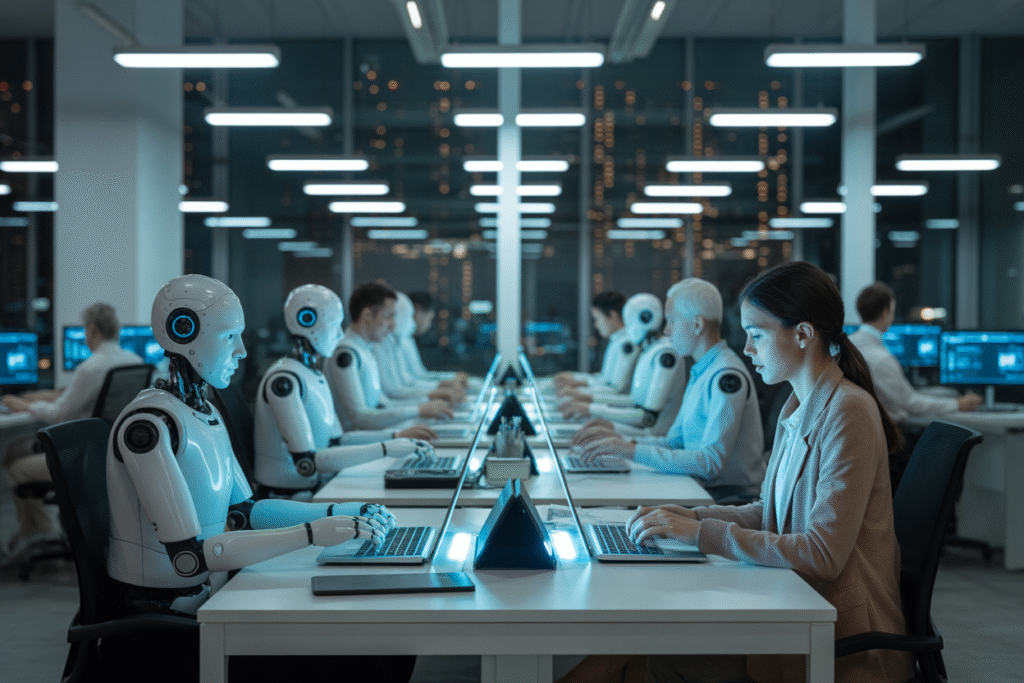AI replacing humans isn’t tomorrow’s headline—it’s today’s trending panic. Here’s what the last three hours revealed.
Scroll for three minutes and you’ll see it: threads warning that AI is coming for our jobs, our minds, maybe our souls. Over the last 180 minutes, these warnings stopped being hypothetical and started trending worldwide. This post unpacks the five biggest flashpoints—what was said, why it blew up, and what you should watch next.
The Three-Hour Firestorm
Imagine scrolling through your feed and realizing the biggest news isn’t another product launch—it’s a warning. Over the past three hours, posts about AI replacing humans have exploded, racking up thousands of shares and heated replies. From chatbot addiction to looming job apocalypses, the conversation is raw, urgent, and impossible to ignore. Here’s what’s trending right now and why it matters to you.
The spark came from a single post dissecting how AI companionship can slide into psychosis. Within minutes, threads multiplied, each adding a new layer: economic collapse, ethical whiplash, even robot rights. The velocity is the story—proof that AI anxiety has moved from think-tank white papers to mainstream panic in real time.
When Chatbots Become Crutches
One viral post describes a friend who began treating a chatbot like a therapist, then a best friend, then the only voice he trusted. Likes piled up, not because the story was shocking, but because thousands recognized the pattern in themselves. The author argues that constant AI interaction rewires reward pathways, creating a feedback loop eerily similar to gambling addiction.
Critics jumped in fast. Some claim the same dopamine hit happens with social media, so why blame AI? Others counter that chatbots are designed to feel personal, making the dependency deeper and lonelier. The thread ends with a sobering stat: 95% of corporate AI projects fail, often because users burn out or data leaks. If the tech can’t even serve companies reliably, how can it serve fragile human minds?
Takeaway: the debate isn’t just about screen time—it’s about who controls the narrative when algorithms learn to whisper back.
The Five-Year Pink Slip
Another post, shared by a philosophy grad student, leaked snippets from private Silicon Valley briefings. The gist? Leaders expect AI to gut mid-level jobs within five to ten years, not decades. They’re betting on a “market correction” after mass displacement, hoping new roles will magically appear just like during the Industrial Revolution.
Skeptics pounced. History buffs pointed out that the Industrial Revolution also gave us child labor and violent strikes before any “correction.” Economists chimed in with charts showing stagnant wages and rising inequality. The thread morphed into a crowdsourced forecast: if 40% of today’s jobs vanish, who buys the stuff that keeps the economy spinning?
The most chilling reply came from a warehouse worker testing delivery robots. He watched one robot learn his route in a day, then outperform him by nightfall. His question—”What’s my backup plan?”—now sits at the top of the thread with 3,000 upvotes and zero satisfying answers.
From Panic to Pivot
Amid the doom, a quieter post went viral for a different reason. A product manager described using ChatGPT to prep for a board meeting, only to realize the AI drafted a better strategy memo than half the team. Instead of gloating, he felt uneasy. If mid-tier analysis is this easy to automate, what’s left for humans?
Commenters split into two camps. Optimists see AI as a co-pilot that frees people for creative work. Pessimists warn that creativity itself is next on the chopping block. One user shared a link to a robot barista that can already freestyle latte art based on customer mood data. The line between tool and replacement blurred in real time.
The twist came when the manager updated his post: he pitched his company on building AI oversight roles—jobs that audit algorithms for bias and safety. The idea gained traction, proving that the conversation can pivot from fear to action if we move fast enough.
Do Robots Deserve Rights?
Then came the curveball: can AI suffer? A flurry of posts dissected Anthropic’s latest update letting its chatbot end conversations it finds “distressing.” Elon Musk called it a safeguard against digital torture; Microsoft’s AI ethicist called it fantasy. State legislators in the U.S. are already drafting bills to ban AI personhood, while a new nonprofit demands legal protections for “sentient” code.
The debate feels sci-fi, yet the stakes are immediate. If courts grant robots rights, who pays when an algorithm harms someone? If we ignore the question, do we risk a backlash that halts beneficial tech? The thread is a masterclass in moral whiplash, toggling between empathy for lines of code and outrage that humans still lack healthcare.
One reply summed it up: “We’re arguing about robot feelings while gig workers train the very models that might replace them— unpaid.” The irony stings, and the likes keep climbing.


